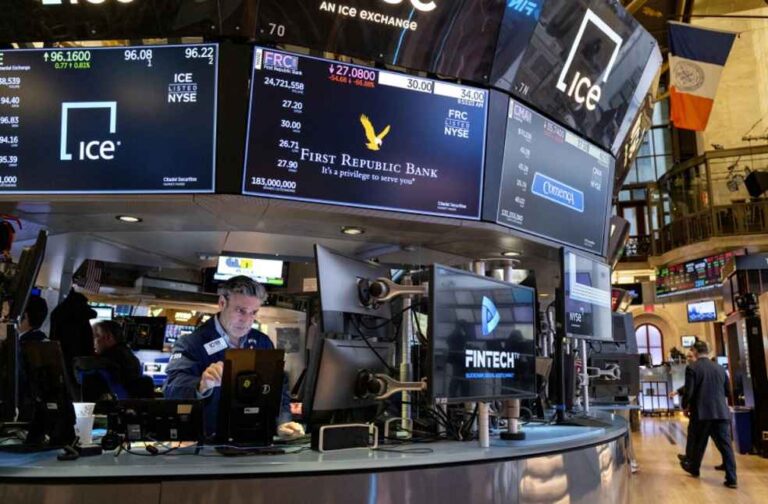The banking crisis, which has been the source of investor trepidation for several months, might be entering a recovery phase as US regional bank shares rallied on Wednesday. This surge followed Western Alliance Bancorp’s (WAL.N) announcement of a substantial deposit growth, signaling a potential turnaround for the beleaguered banking sector.
Western Alliance saw its deposits grow by over $2 billion from February to May 12, a clear sign of continued customer confidence in the bank’s financial strength. This encouraging development comes despite the recent failures of three regional lenders: Silicon Valley Bank, Signature Bank, and First Republic Bank.

Arthur Hogan, Chief Market Strategist at B. Riley Wealth, highlighted the importance of this development for anxious investors, stating that such indicators can help rebuild confidence in the banking sector. Western Alliance, once among the most heavily affected banks, saw its shares surge by 10%, recouping losses accumulated over the past two weeks.
Moreover, other regional banks enjoyed a similar uplift. PacWest Bancorp (PACW.O), Zions Bancorp (ZION.O), Comerica Inc (CMA.N), and KeyCorp (KEY.N) all recorded substantial gains, contributing to a 7.3% jump in the KBW Regional Banking Index, its highest point since May 1.

Despite this positive trend, a return to pre-crisis levels remains a distant goal, with the earnings environment for regional banks still impaired. Yet, as the emergency period fades, the focus is shifting to the underlying fundamentals.
Lindsey Johnson, President and CEO of the Consumer Bankers Association, emphasized the need for cooperation between regulators and the regional banking industry. Speaking at the Exchequer Club of Washington, D.C., Johnson urged policymakers to work in conjunction with the banking industry to restore consumer confidence and ensure stability in the financial system.

Regional banks, crucial players in the troubled US commercial real estate and construction markets, have minimized their exposure to these sectors by enforcing stricter standards and limiting loan issuance. The property market has seen a decline in office usage and falling property values due to recession fears and the effects of the pandemic.
Despite the recent turmoil, the week ended May 3 saw a climb in deposit flows at U.S. banks, including regional lenders, to $17.16 trillion, marking the first increase in a month, according to Federal Reserve data.
While the banking sector faces continued challenges, the recent growth in deposits and rallying of bank shares signals a growing optimism among investors that the worst may be over.



